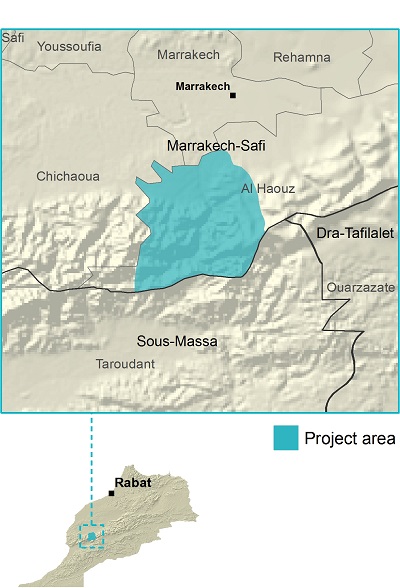Agricultural Value Chain Development Project in the Mountain Zones of Al-Haouz Province
IFAD Asset Request Portlet
Asset Publisher
Agricultural Value Chain Development Project in the Mountain Zones of Al-Haouz Province
This project will directly benefit approximately 33,000 people – including smallholder farmers and livestock producers, women, young people and landless farmers – whose livelihoods are affected by the upward and downward linkages of the olive, apple and lamb-meat value chain.
The project’s overall goal is to alleviate rural poverty through sustainable growth in the incomes of poor rural women, men and young people involved in the three agricultural production sub-sectors referenced above.
More specifically, the project will:
- raise the productivity and quality of the three targeted products
- enhance the value added of the targeted products through processing and packaging
- improve producers’ access to more lucrative markets.
In addition, the project will increase women’s participation in the planning and implementation of project activities by:
- providing technical and organizational capacity-building
- facilitating access to credit.

President's reports
Project design reports
Supervision and implementation support documents
Supervision and implementation support documents
Supervision mission, April 2018
Year: 2018
Rapport de supervision juillet 2017
Year: 2017
Rapport de supervision, mars 2015
Year: 2015
Rapport de supervision Mai 2014
Year: 2014
Environmental and social impact assessment
Final environmental and social management framework
Interim (mid-term) review report
Interim (mid-term) review report
Resettlement action framework
PCR digest
Special study
Project list
Audit and Financial Statements
Audit and Financial Statements
Project completion report
Project completion report
Co-financiers
Related
Related
Three ways we’re using digital technologies to fight rural poverty in the NEN region
December 2020
- STORY
Digital technologies have become our constant companions over the last few decades. Devices like smartphones and laptops have become even more relevant after the COVID-19 outbreak, helping us stay in touch even in times of physical distance.